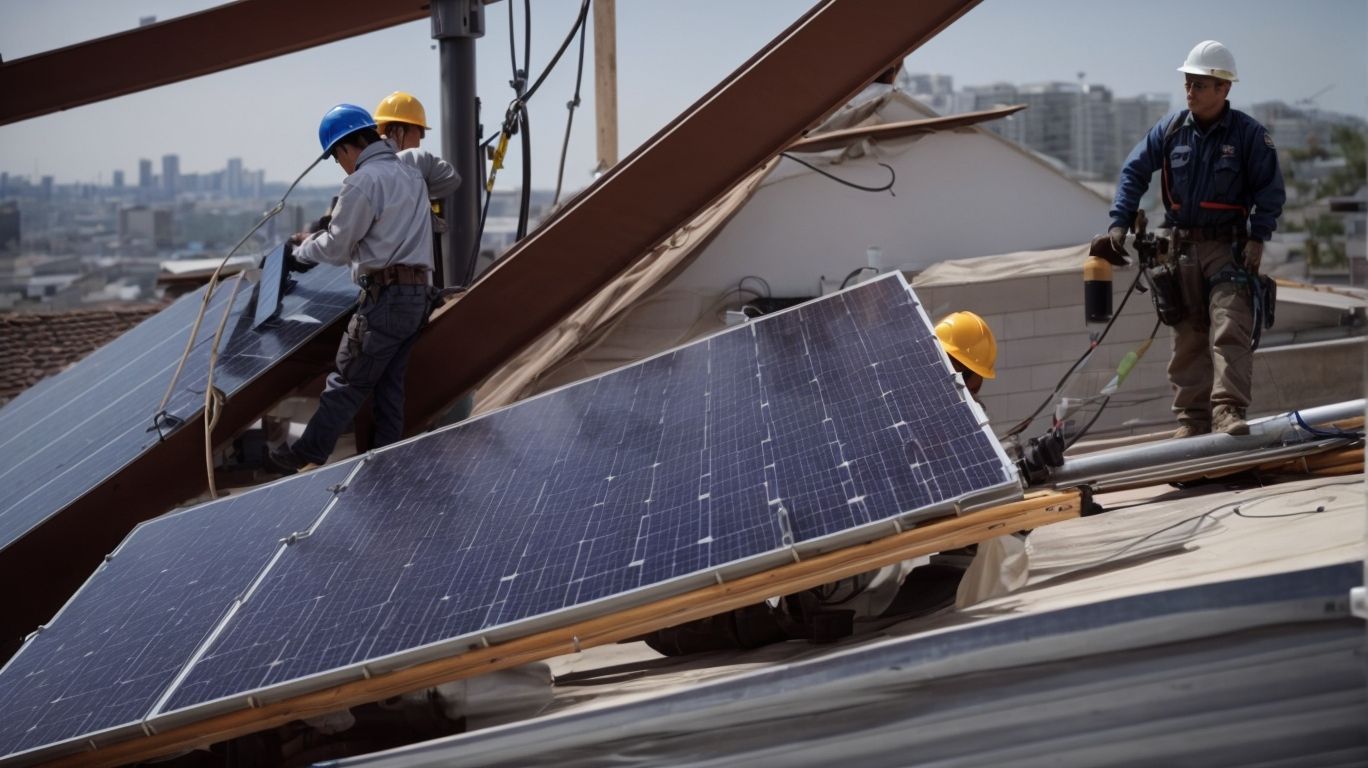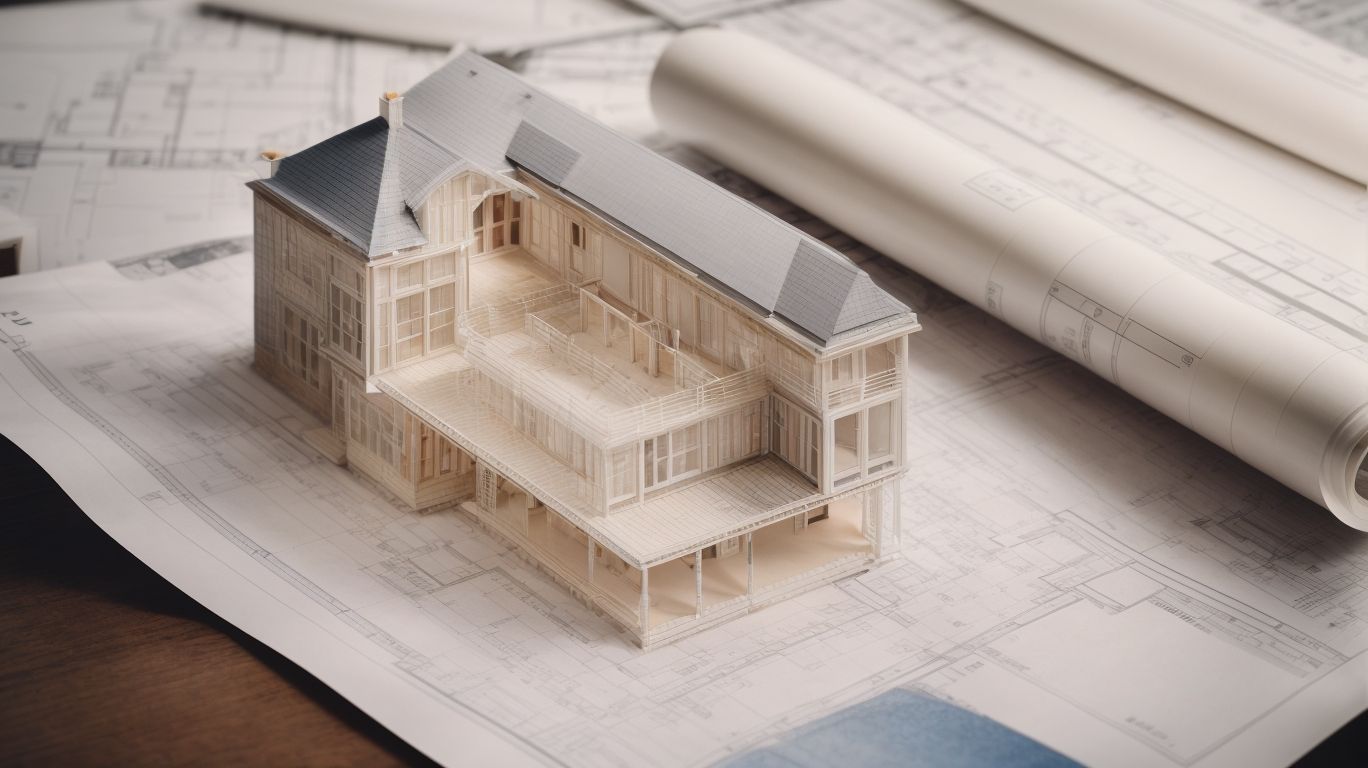
Solar Roof Installations: Ensuring Safety with Structural Engineers
Solar roof installations have become increasingly popular as homeowners and businesses seek to harness the power of the sun for energy. Ensuring the safety and structural integrity of these installations is of utmost importance.
This is where structural engineers play a crucial role. From conducting site inspections to designing support structures and providing expert advice, structural engineers are essential in the solar roof installation process.
In this article, we will explore the qualifications of structural engineers, the potential risks of not consulting one, and the benefits of working with them. We will also discuss how homeowners can find a reliable structural engineer for their solar roof installations.
So, let’s dive in and learn more about the role of structural engineers in ensuring the safety of solar roof installations.
What Are Solar Roof Installations?
Solar roof installations involve the process of integrating solar panels onto the roof of a building or structure to harness renewable energy from the sun.
By utilizing solar panels, these installations not only reduce reliance on non-renewable energy sources but also contribute to a cleaner environment by lowering carbon emissions.
The installation process adheres to strict standards and requires durable materials to endure various weather conditions. The integration of renewable energy through solar roof installations aligns with the global push toward sustainable practices, making it a significant step in mitigating the impact of climate change and moving towards a greener future.
Why Is Safety Important in Solar Roof Installations?
Safety is paramount in solar roof installations to prevent potential hazards and ensure the protection of both the installers and the building occupants.
The implementation of comprehensive safety protocols and training measures is crucial to mitigate risks associated with working at heights and handling electrical components.
Regular inspections of the installation site and equipment are essential to identify and address any potential safety concerns proactively.
Prioritizing the use of personal protective equipment, fall protection systems, and proper handling of tools and materials can significantly reduce the likelihood of accidents and injuries during solar roof installations.
What Is the Role of Structural Engineers in Solar Roof Installations?
Structural engineers play a crucial role in solar roof installations by ensuring the structural integrity of the building, navigating the permitting process, and providing engineering expertise for the installation.
Their expertise in assessing the structural capacity of the building and incorporating necessary reinforcements is essential to ensure that the solar panels are securely installed without compromising the building’s safety.
Through their comprehensive understanding of the permitting process, they are able to streamline the approval process and ensure compliance with local regulations, which is crucial for the successful implementation of solar roof projects.
Their engineering support extends to optimizing the placement and layout of solar panels to maximize energy production while maintaining the building’s structural stability.
What Are the Qualifications of Structural Engineers?
The qualifications of structural engineers encompass professional certifications, project management skills, and proficiency in advanced installation techniques, ensuring their capability to oversee complex solar roof installations.
Structural engineers must have a thorough grasp of structural analysis and design principles, as well as the ability to interpret and apply building codes and regulations. They also need experience in conducting site evaluations, determining load requirements, and working closely with architects and construction teams.
Effective project coordination and execution require strong problem-solving abilities, attention to detail, and excellent communication skills. These professionals play a crucial role in ensuring the safety and integrity of buildings and structures.
What Are the Potential Risks of Not Consulting a Structural Engineer?
Failing to consult a structural engineer for solar roof installations can lead to risks such as non-compliance with building codes, regulatory issues, and compromised structural integrity.
This can result in serious legal and safety ramifications, as the absence of a structural engineer’s expertise may lead to the construction not meeting the necessary safety standards.
Non-compliance with building codes can result in hefty fines, delays, or even demolition orders. Compromised structural integrity could pose significant risks to the occupants and the surrounding area.
It’s crucial to prioritize safety and legal compliance by engaging a structural engineer for any solar roof installation to mitigate these potential risks.
How Do Structural Engineers Ensure Safety in Solar Roof Installations?
Structural engineers ensure safety in solar roof installations through meticulous structural calculations, assessment of load-bearing capacity, and adherence to regulatory compliance.
Structural engineers play a crucial role in the installation of solar roof systems. They use advanced engineering software and techniques to analyze the structural integrity of roofs, considering factors like wind and snow loads, as well as the weight of solar panels.
To ensure the safety and long-term performance of the system, they conduct thorough on-site inspections and make necessary reinforcements to the existing roof structure. By meeting all relevant building codes and standards, structural engineers guarantee the suitability of the installation.
Conducting Site Inspections
Structural engineers conduct comprehensive site inspections, implementing rigorous safety protocols, and collaborating with professional contractors to assess the installation environment.
Building inspections involve a thorough examination of structural integrity and stability. Engineers analyze materials, load-bearing capacities, and adherence to building codes. They also look for signs of wear, corrosion, and weaknesses.
Collaboration with contractors allows for seamless coordination in addressing issues. Thorough assessments ensure safety and longevity, providing peace of mind to builders and occupants.
Calculating Load Capacity
Structural engineers meticulously calculate the load capacity of the roof structure, leveraging their engineering expertise to determine the optimal support for solar installations.
This process involves a comprehensive examination of the roof’s materials, existing load-bearing elements, and potential stress points. Engineers must account for factors such as wind, snow, and other environmental loads, ensuring the support system can withstand these forces.
Through thorough calculations and analysis, structural engineers identify the most suitable mounting solutions to ensure the safe and efficient integration of solar panels onto the roof.
Designing Support Structures
Structural engineers design robust support structures tailored for solar roof installations, implementing advanced installation techniques and prioritizing weather resistance for long-term durability.
Skilled professionals in the renewable energy industry carefully analyze the unique requirements of each solar installation site. They consider factors such as load-bearing capacity, wind loads, and environmental conditions.
By integrating innovative materials and design principles, these experts create structures that can withstand extreme weather events. This ensures the longevity and reliability of the solar panel system. Their meticulous attention to detail in the planning and execution phases plays a pivotal role in the overall performance of solar installations.
Reviewing Plans and Permits
Structural engineers meticulously review installation plans and permits to ensure compliance with regulatory requirements and facilitate a seamless permitting process for solar roof installations.
This comprehensive review process involves an in-depth analysis of the structural integrity, load-bearing capacity, and adherence to building codes.
Engineers assess the plans for any potential risks or structural vulnerabilities, striving to guarantee the safety and longevity of the solar roof system.
They play a vital role in liaising with local authorities and regulatory bodies to address any concerns and streamline the approval process.
By thoroughly examining the plans and permits, these professionals contribute significantly to the efficient and compliant execution of solar roof projects.
Providing Expert Advice and Recommendations
Structural engineers offer expert advice and recommendations throughout the installation process, prioritizing safety protocols and providing valuable insights through effective project management.
The consultative role of structural engineers goes beyond mere oversight. They bring valuable technical expertise to ensure that all structural elements meet safety standards and codes. They actively collaborate with architects, contractors, and other stakeholders to streamline project workflows and address any structural concerns.
Their input is crucial in identifying potential issues early on, mitigating risks, and ensuring the project’s successful completion. Through analysis and interpretation of complex structural data, engineers provide informed recommendations that contribute to the overall success of the project.
What Are the Benefits of Working with a Structural Engineer for Solar Roof Installations?
Collaborating with a structural engineer for solar roof installations offers benefits such as enhanced energy efficiency, access to high-quality construction materials, and the assurance of professional contractor partnerships.
The expertise of our team ensures that the structural aspects of your solar installation are designed to maximize sunlight exposure, thereby optimizing energy production.
By working with a structural engineer, you can trust that premium construction materials will be used, contributing to the durability and longevity of your solar roof.
Our engineers also have professional relationships with contractors, streamlining the installation process and resulting in a more efficient and seamless project execution.
Compliance with Building Codes and Regulations
Working with a structural engineer ensures seamless compliance with building codes and regulations, mitigating potential regulatory challenges and ensuring adherence to stringent installation standards for solar roofs.
Their expertise in analyzing and designing structural components ensures that solar roof installations meet the specific requirements outlined in building codes and regulations.
By collaborating with architects and construction teams, they play a crucial role in integrating renewable energy solutions within the framework of existing regulatory parameters.
Their involvement helps address challenges related to structural integrity, load-bearing considerations, and safety compliance, ultimately contributing to the smooth implementation of solar roof systems while meeting all necessary regulatory standards.
Peace of Mind
Engaging a structural engineer provides homeowners with peace of mind, knowing that comprehensive hazard prevention measures and safety protocols are diligently implemented for solar roof installations.
This level of expertise reassures homeowners that their solar roof will be structurally sound and resilient, especially in areas prone to severe weather conditions.
Structural engineers bring a deep understanding of local building codes and environmental factors, contributing to the overall safety and durability of the installation. Their involvement also ensures that the project adheres to industry best practices, giving homeowners confidence in the long-term performance and reliability of their solar roof system.
Cost Savings
Working with a structural engineer can lead to cost savings through the efficient and streamlined solar installation process. This is achieved by leveraging effective project management and resource optimization.
Their expertise in structural analysis and design can ensure that the solar panels are installed in the most efficient manner. This reduces labor costs and minimizes material wastage.
Their input can also lead to the selection of optimal materials and techniques, further enhancing the overall cost-effectiveness of the project. By overseeing the project management and coordinating with various stakeholders, the engineer can streamline the installation process, minimizing potential delays and ensuring timely completion. This approach not only saves money, but also results in a more sustainable and durable solar roof installation.
Efficient and Safe Installation Process
The involvement of a structural engineer ensures an efficient and safe installation process for solar roofs. They optimize installation techniques and prioritize safety at every stage of the project.
Structural engineers play a crucial role in assessing the structural integrity of a building. This helps determine the most suitable methods for mounting solar panels while ensuring that the roof can bear the additional weight. Their expertise also involves evaluating the impact of wind, snow, and other environmental factors on the solar roof system. This ensures its long-term stability and safety.
By incorporating industry best practices and regulatory compliance, structural engineers contribute significantly to the successful and sustainable installation of solar roofs.
How Can Homeowners Find a Reliable Structural Engineer for Solar Roof Installations?
Homeowners can identify a reliable structural engineer for solar roof installations through thorough research, seeking recommendations from professional contractors, and assessing expertise in regulatory compliance.
Engaging in extensive research is essential to gain insight into the background and track record of the structural engineers. Homeowners should look for credible reviews and ratings, emphasizing the importance of experience and expertise in solar roof installations.
Seeking recommendations from reputable contractors can provide valuable insights into the engineers’ professionalism and capability. Assessing their proficiency in regulatory compliance is crucial, as adherence to building codes and safety standards is paramount in solar roof installations.
Research and Ask for Recommendations
Homeowners should conduct comprehensive research and actively seek recommendations from trusted sources to identify a skilled structural engineer with expertise in solar roof installations.
This process can involve reaching out to industry professionals, such as solar panel installers or renewable energy suppliers, to gather insights on reputable engineers. Homeowners can leverage online platforms and review websites to read testimonials and ratings from previous clients.
It’s crucial to vet the engineer’s credentials, experience, and track record to ensure they possess the necessary qualifications for the specialized task of integrating solar technology into the roofing structure. By taking these proactive steps, homeowners can secure the services of a proficient structural engineer, setting them on the right path for a successful solar roof installation.
Check for Licenses and Certifications
Homeowners should verify the licenses and certifications of potential structural engineers to ensure compliance with regulatory requirements and the demonstration of professional competence in solar roof installations.
This step is crucial as it not only confirms the engineer’s adherence to essential industry standards but also speaks volumes about their expertise in overseeing solar roof projects.
By doing so, homeowners can rest assured that the structural engineer possesses the necessary skills to handle the complexities of solar installations, ensuring the safety and durability of the structure.
Evaluating licenses and certifications also underscores the commitment of the engineer to ongoing professional development, ultimately benefiting the homeowner in terms of quality and peace of mind.




No Comments